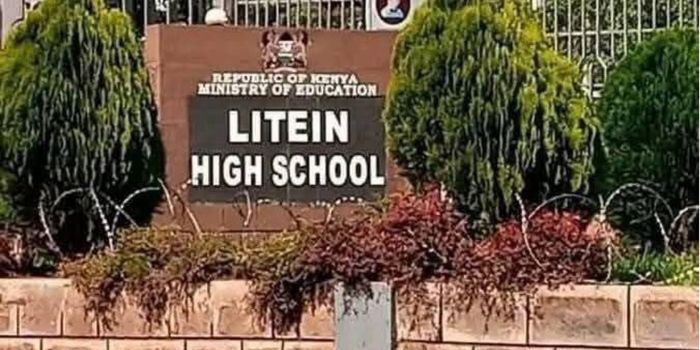Litein Boys High School in Kericho County has been closed indefinitely following violent student unrest triggered by a denied request to watch the much-anticipated English Premier League (EPL) match between Arsenal and Manchester City.
According to sources within the school, students had requested to view the 90-minute clash as part of their usual weekend entertainment schedule, a tradition common in many boys’ schools. However, the administration rejected the request, sparking anger among learners.
The situation quickly escalated into chaos, with students turning violent in protest. Dormitories and classrooms were set ablaze, and property worth millions of shillings was destroyed. Videos and images shared online showed several school blocks engulfed in flames, leaving behind charred debris. Reports indicate that students overpowered security and police officers after switching off all lights in the compound, enabling them to carry out the destruction under the cover of darkness.
This is not the first time Litein Boys High School has faced unrest. In July 2024, students staged a violent protest over allegedly undercooked rice served during dinner, forcing police intervention. That incident came just a year after a May 2023 riot, during which students vandalized biometric systems, smashed window panes, and damaged vehicles.
The repeated disruptions have raised concerns about discipline, student mental health, and the effectiveness of school leadership in handling grievances. Education officials, security agencies, and the school’s administration have already launched investigations into the latest incident to determine the cause and recommend long-term solutions.
Meanwhile, parents have expressed shock and disappointment over the destruction, noting that such unrest not only disrupts learning but also imposes heavy financial burdens due to repairs. Authorities are expected to release an official statement on the way forward in the coming days.
With the school now closed indefinitely, questions linger on how institutions can balance discipline with addressing students’ recreational and psychological needs to prevent future unrest.

